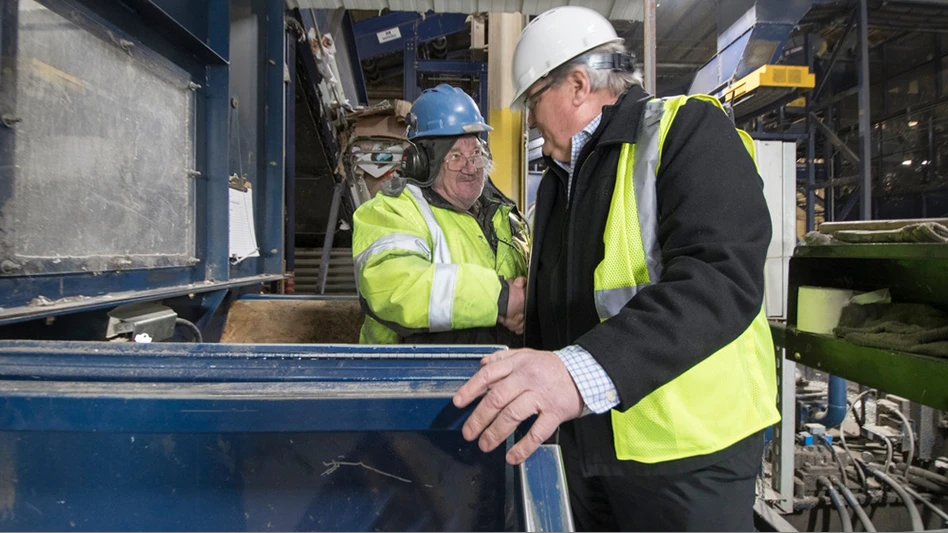
Insurance claims in other parts of the country are driving up the cost of doing business for an Alexandria, Minnesota, incinerator that turns garbage into energy, with some of those costs being passed on to customers, reports the Alexandria Echo Press.
Pope/Douglas Solid Waste Management is one of four county-owned waste-to-energy (WTE) facilities looking to secure insurance for 2021, but likely at a higher cost than in the past, because of those claims.
Stever Vrchota, director of Pope/Douglas Solid Waste Management, told the Echo Press there was a big shift in 2020 in the insurance industry on property loss, and because of large losses at a few facilities across the U.S., property insurance and re-insurance is either very hard to get and/or very expensive for the incinerators.
He explained that the insurance fees for the Pope/Douglas facility could go up by more than $300,000 for 2021, which he said they have budgeted for.
“Our tipping fee is increasing for 2021 from $82.28 to $86.61 to cover operational cost increases and this is a part of that,” he said. “We are actively working with Minnesota Counties Intergovernmental Trust (MCIT) to find more cost-effective insurance based on our actual history of claims and our risk management strategies.”
MCIT, a joint powers entity made up of Minnesota counties and others that pool resources to provide property, casualty and workers’ compensation coverage to members, also offers risk management and loss control services.
“For the first time I can remember, waste-to-energy operations have become a difficult business for anybody to reinsure,” said Robyn Sykes, who has been executive director of the MCIT since 1999.
Sykes said the four county-owned facilities are well-run operations with 20 years’ worth of good track records and low claims histories–but MCIT’s reinsurance provider refused to cover them this year.
Because of this, MCIT was left to shop in the expensive specialized reinsurance market to find coverage for the four waste-to-energy plants.
For the Pope/Douglas facility, Vrchota said, “We are aggressively looking at our options for 2021 and beyond.”
Get curated news on YOUR industry.
Enter your email to receive our newsletters.Latest from Waste Today
- Techbros launches AI-integrated electronics processing facility
- Understanding interchange optimization
- Account Updater: Keeping customer credit cards always up-to-date
- Understanding credit card fees
- CDRA names new executive director
- CRI credits DRS modifications for Connecticut container recycling rate boost
- LRS expands into Indianapolis with purchase of GHW
- Pelleting equipment: Transform hard-to-handle waste streams






